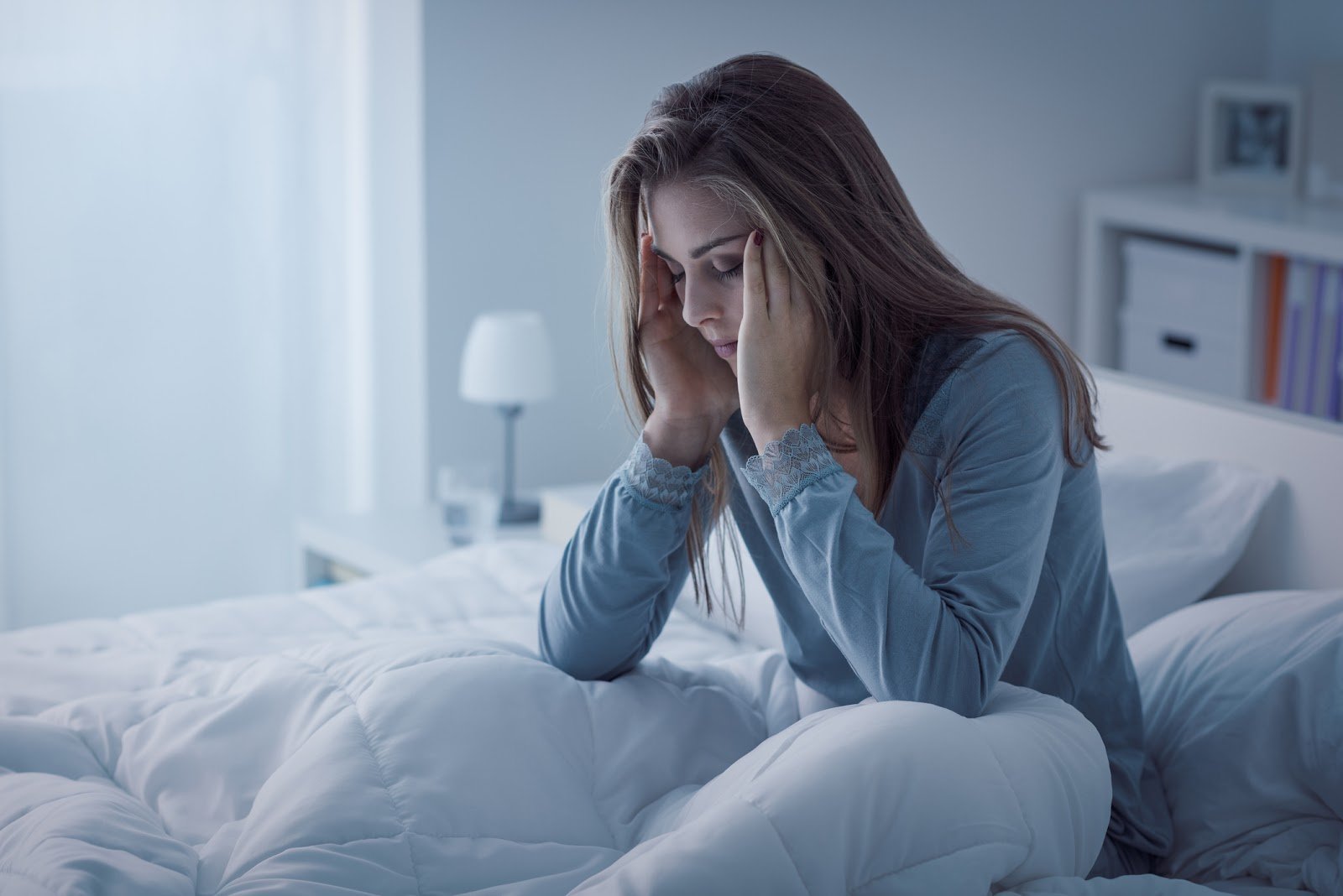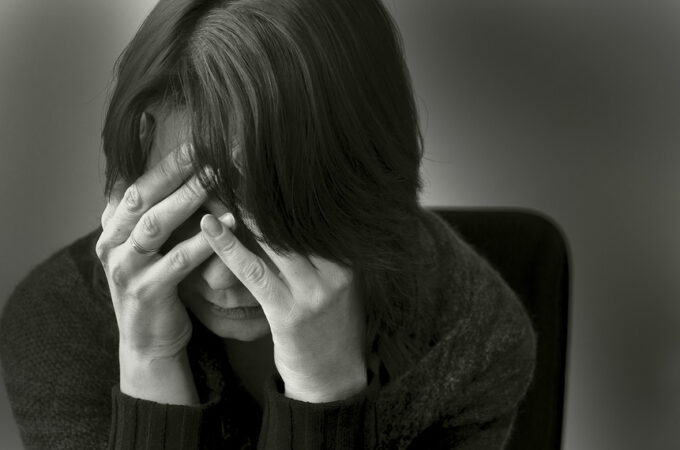
Anxiety: Physical Effects & Tips For Management And Prevention
Each of us, at some point in our life, has feelings of anxiety. While it is a natural human state and a vital part of our daily routine, there is another anxiety side.
When the whole world might seem like a scary place, every situation can feel fraught with potential danger, and your mind can regularly bring you back to the worst-case scenario; this can have not only a negative impact on your physical and mental health but also distressing and debilitating effects on your ability to function in day-to-day lives.
How Does Anxiety Affect Your Body?
Anxiety can impact your body in a variety of different ways. While short term anxiety can trigger a fight or flight response that can increase your heart rate and send a rush of blood flow to the brain, bouts of chronic anxiety can have more serious consequences on your physical health.
These are the different areas of your body that can be affected by anxiety disorders.
The central nervous system – Regular panic attacks can cause your brain to release stress hormones such as cortisol and adrenaline into the central nervous system. While initially, this can help your body respond to the perceived threat, the prolonged exposure to these chemicals may also lead to persistent headaches, dizziness, depression and weight gain.
The cardiovascular system – Anxiety disorders can increase the likelihood of heart palpitations, pain in the chest, increased blood pressure and various heart diseases emerging. Those who already suffer from heart conditions are especially vulnerable to these effects.

The excretory and digestive systems – Anxiety can cause stomach aches, nausea, diarrhoea, and other digestive issues. Another critical problem that can be caused by anxiety disorders is a loss of appetite.
The immune system – When anxiety takes over, it kicks your brain into survival mode. In acute cases of anxiety, this increases your pulse and breathing rate, which encourages more oxygen flow to the brain before returning your body to normal functioning. However, in more chronic cases of anxiety, it takes longer for the body to return to normal. This places strain on your immune system and thus makes it harder to fight off viral infections and illnesses.
The respiratory system – Anxiety disorders may also have a knock-on effect on your repository system. Due to the hyperventilation that may occur during anxious episodes, asthma and anxiety often come hand in hand.
How Does Anxiety Affect Your Brain?
Anxiety is predominantly produced and processed in two parts of the brain, the amygdala and the hippocampus. The amygdala is recognised to be the communications hub in the brain that processes and interprets incoming signals. It’s responsible for alerting the rest of the brain when a threat is detected and triggering the anxiety response. The hippocampus, on the other hand, is the part of the brain that encodes these threatening events into memories.
When people have serious anxiety disorders, it can cause damage to these areas of the brain associated with anxiety. This can subsequently cause a knock-on effect to different areas of the brain and hinder its functioning in a variety of ways.
- Anxiety can impact memory. Chronic anxiety can cause structural degeneration of the hippocampus, the part of the brain responsible for memory function. For this reason, excessive anxiety can affect long term memory. Also, the release of stress hormone cortisol during more acute bouts of anxiety can cause someone to be forgetful and confused in the short term too;
- Anxiety can cause impulsive behaviour. Prolonged anxiety can also contribute to the impaired functioning of the prefrontal cortex, the area of your brain that is responsible for decision making, impulsivity, and social behaviour. Impaired functioning of this cerebral cortex can result in increased irritability and poor decision making;
- Anxiety may be a reason for insomnia. Chronic anxiety activates the sympathetic nervous system, which changes heart rate, breathing and brain waves. All of these factors may affect the quality and duration of sleep;
- Anxiety can lead to depression. If anxiety is left untreated, and it creates a pattern of avoidance behaviours, there is an increased chance that after these strategies stop becoming effective, it could put you at a higher risk of generating depression.
Five Tips For Dealing With Anxiety
Learn Your Triggers
Knowing what is causing anxiety can help you develop coping mechanisms and prevent symptoms. You can recognise triggers on your own or with a therapist. Often they can be obvious, such as drinking alcohol, caffeine or smoking. In other cases, they may take some time to figure out, such as financial or work-related situations — is it associated with a person, the situation or a due date?

Prioritise Healthy Choices
A healthful lifestyle that includes eating balanced meals, exercising regularly and getting enough sleep are great methods to stave off anxiety symptoms. Also, try to limit caffeine and alcohol intake. These substances, as well as energy and sugary drinks, can stimulate the nervous system and worsen your anxiety and panic attacks.
Consider Using CBD
Nowadays, drinking tea, taking oral tincture or even chewing CBD gummies for anxiety is considered an alternative yet effective way to relieve stress levels. As a natural compound, cannabidiol (CBD) can interfere with different receptors found throughout the body to help reduce anxiety, improve mood and promote a more focused, calm state of mind, among many other benefits. To reap its benefits, you can also relax in a tube with a CBD bath bomb, inhale CBD through a vape pen, or take infused capsules, among many other products and methods of intake.
Try Breathing Exercises
Breathing exercises are referred to as an effective practice for clearing your mind and calming you down. It helps to reduce anxiety and bring the focus back to the present so you can continue with your daily tasks. Just sit in a comfortable position, close your eyes and fully concentrate on slowing your exhalation, which in turn will help to slow your next inhalation. Breathing control allows you to lower your heart rate and get yourself some peace.
Talk To Someone You Trust
Talking about how you are feeling and what is making you anxious could also be a relief. So, don’t be afraid to talk to someone you trust, whether it is your family members, friends, colleagues, a doctor or a licensed therapist. As anxiety arises from fearful thoughts, suffering in silence can aggravate anxiety.




